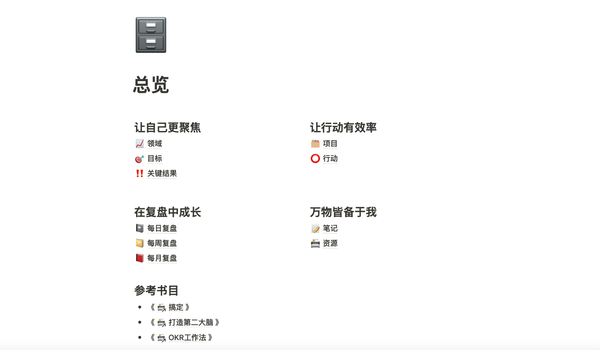Paul Graham谈选择问题比解决问题更重要
美国著名程序员、博客作者和技术作家保罗·格雷厄姆(Paul Graham)在其个人网站上的长文《How to do great work》给仍然雄心勃勃的年轻人提了一些建议,适合每位对自己仍有期望的朋友反复阅读。下面是本文的第十四部分摘录:
People show much more originality in solving problems than in deciding which problems to solve. Even the smartest can be surprisingly conservative when deciding what to work on. People who’d never dream of being fashionable in any other way get sucked into working on fashionable problems.
One reason people are more conservative when choosing problems than solutions is that problems are bigger bets. A problem could occupy you for years, while exploring a solution might only take days. But even so I think most people are too conservative. They’re not merely responding to risk, but to fashion as well. Unfashionable problems are undervalued.
One of the most interesting kinds of unfashionable problem is the problem that people think has been fully explored, but hasn’t. Great work often takes something that already exists and shows its latent potential. Durer and Watt both did this. So if you’re interested in a field that others think is tapped out, don’t let their skepticism deter you. People are often wrong about this.
Working on an unfashionable problem can be very pleasing. There’s no hype or hurry. Opportunists and critics are both occupied elsewhere. The existing work often has an old-school solidity. And there’s a satisfying sense of economy in cultivating ideas that would otherwise be wasted.
But the most common type of overlooked problem is not explicitly unfashionable in the sense of being out of fashion. It just doesn’t seem to matter as much as it actually does. How do you find these? By being self-indulgent — by letting your curiosity have its way, and tuning out, at least temporarily, the little voice in your head that says you should only be working on “important” problems.
You do need to work on important problems, but almost everyone is too conservative about what counts as one. And if there’s an important but overlooked problem in your neighborhood, it’s probably already on your subconscious radar screen. So try asking yourself: if you were going to take a break from “serious” work to work on something just because it would be really interesting, what would you do? The answer is probably more important than it seems.
Originality in choosing problems seems to matter even more than originality in solving them. That’s what distinguishes the people who discover whole new fields. So what might seem to be merely the initial step — deciding what to work on — is in a sense the key to the whole game.
人们在解决问题上展现出的原创性远远超过在决定要解决哪些问题上。即使最聪明的人,在选择工作内容时也可能表现出让人惊讶的保守。那些在其他方面决不会追逐流行的人,在选择问题时也会受主流思想影响。
人们在选择问题时比解决问题时更保守的一个原因是,问题本身的风险更大。一个问题可能占用你数年时间,而找出一个解决方案可能只需几天。但即便如此,我认为大多数人在问题选择上还是过于保守。他们不仅仅是在评估风险,还在追逐时尚。那些冷门问题常被低估。
一类最有意思的冷门问题是人们误以为已经被完全探讨透彻,但实际上仍有未知的问题。伟大的工作往往是建立在已有基础上,揭示事物的更多可能。杜勒和瓦特的工作都是如此。所以如果你对一些被认为已竭尽全力的领域保持兴趣,不要被他人的怀疑所阻。人们在这方面的判断常常是错误的。
致力于一个冷门问题可以非常令人满意。这里没有炒作,也没有匆忙。投机者和批评者都去了其他地方。现有的工作通常更加老道可靠。开发那些可能被忽略的思想也有一种经济的满足感。
但是,最常被人忽视的问题类型,并不是那些在时尚意义上不流行的问题。这类问题仅仅看起来不像它实际上那样重要。你如何找到这些问题?放任自己,听从自己的好奇心,暂时压制住那个告诉你只应该关注“重要问题”的内心声音。
你确实需要解决重要的问题,但几乎每个人对“重要”的定义都太过保守。如果在你的领域存在一个重要却被忽视的问题,它很可能已经出现在你的潜意识中。所以试着问自己:如果你要从“重要的”工作中歇一歇,仅仅出于好奇和兴趣去研究一些问题,你会选择什么?答案很可能比它看起来更重要。
选择问题的原创性似乎比解决问题的原创性更为重要,这也区分了那些开创全新领域的人。因此,看似仅是一个开始的选择问题这一步,实际上是整个过程的关键。
Few grasp this. One of the biggest misconceptions about new ideas is about the ratio of question to answer in their composition. People think big ideas are answers, but often the real insight was in the question.
Part of the reason we underrate questions is the way they’re used in schools. In schools they tend to exist only briefly before being answered, like unstable particles. But a really good question can be much more than that. A really good question is a partial discovery. How do new species arise? Is the force that makes objects fall to earth the same as the one that keeps planets in their orbits? By even asking such questions you were already in excitingly novel territory.
Unanswered questions can be uncomfortable things to carry around with you. But the more you’re carrying, the greater the chance of noticing a solution — or perhaps even more excitingly, noticing that two unanswered questions are the same.
Sometimes you carry a question for a long time. Great work often comes from returning to a question you first noticed years before — in your childhood, even — and couldn’t stop thinking about. People talk a lot about the importance of keeping your youthful dreams alive, but it’s just as important to keep your youthful questions alive.
This is one of the places where actual expertise differs most from the popular picture of it. In the popular picture, experts are certain. But actually the more puzzled you are, the better, so long as (a) the things you’re puzzled about matter, and (b) no one else understands them either.
Think about what’s happening at the moment just before a new idea is discovered. Often someone with sufficient expertise is puzzled about something. Which means that originality consists partly of puzzlement — of confusion! You have to be comfortable enough with the world being full of puzzles that you’re willing to see them, but not so comfortable that you don’t want to solve them.
It’s a great thing to be rich in unanswered questions. And this is one of those situations where the rich get richer, because the best way to acquire new questions is to try answering existing ones. Questions don’t just lead to answers, but also to more questions.
很少有人意识到这一点。关于新想法最常见的误解之一,就是对其组成中问题与答案的比例认识不足。人们认为伟大的想法就是答案,但通常真正的启发在于提出的问题。
我们低估问题的一个原因是问题在学校教学中的应用方式。在学校里,问题仅仅存在于被回答之前的一瞬间,就像不稳定的粒子一样。但是一个真正好的问题绝不仅仅如此。一个真正好的问题本身就是一个部分的发现。新物种是如何出现的?使物体下落的力量和引起行星运行的力量是同一种吗?光是提出这样的问题,你就已经踏入了令人振奋的新领域。
背负悬而未决的问题会让你不适,但是你背负得越多,就越有可能注意到解决方法——或者,更让人兴奋的,发现有些问题竟有相同之处。
有时候你会花很长时间思考一个问题。伟大的工作常常源自多年前你首次注意到的问题——可能是你童年的疑惑——并无法停止思考。人们常说要保持童真的梦想,但保持那好奇心也同样重要。
这是实际专业知识与普遍观念中最大差异之一。在普遍观念中,专家被认为是确定无疑的。然而,实际上,你越是感到困惑,就越好,只要(a)你困惑的事情很重要,(b)没有其他人理解它们。
想象一下在一个新的想法被发现之前发生的情况。通常情况下,具备足够专业知识的人会对某事感到困惑。这意味着原创性在某种程度上包含了困惑——混乱!你必须对世界充满谜团感到足够舒适,以至于你愿意去发现它们,但又不能过于舒适以致不想解决它们。
拥有众多未回答的问题是一件很棒的事情。而这正是富者更富的情况之一,因为获取新问题的最佳方法就是尝试回答已有的问题。问题不仅仅引导我们找到答案,还会带来更多问题。


